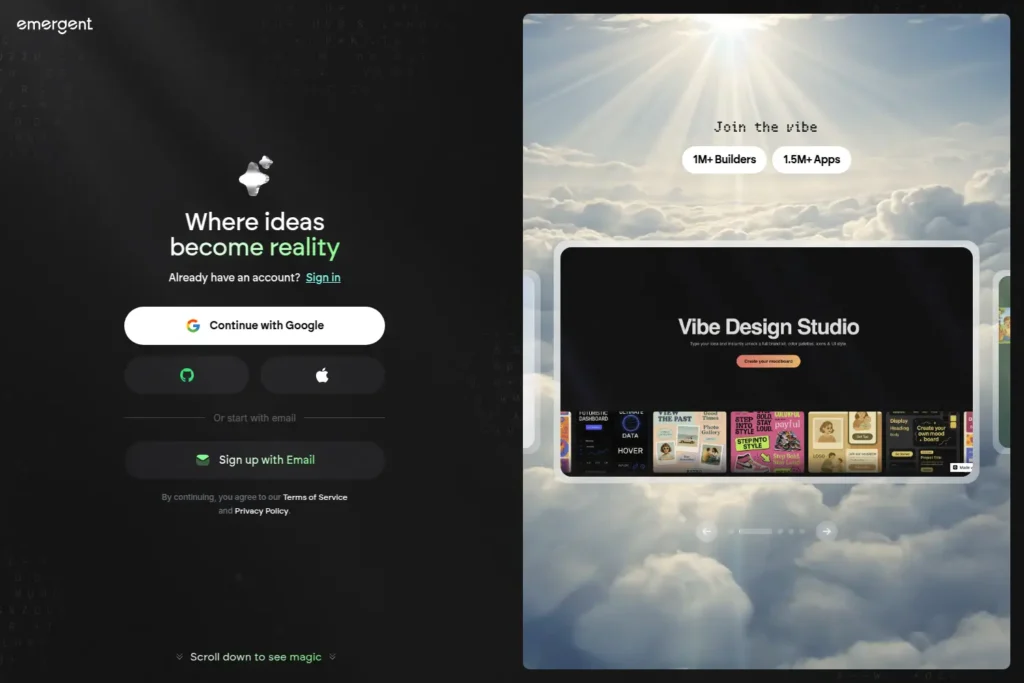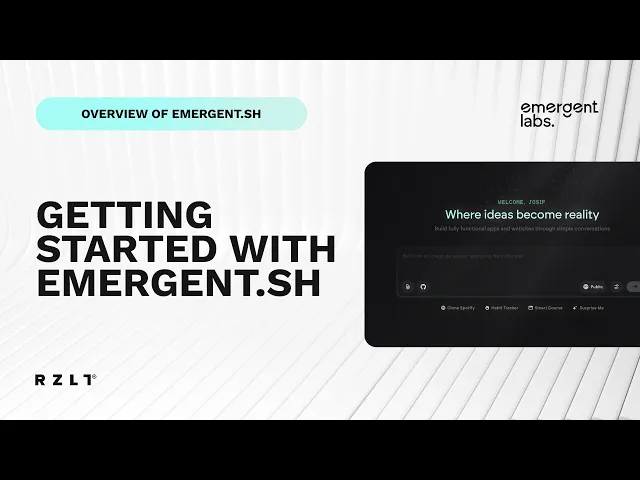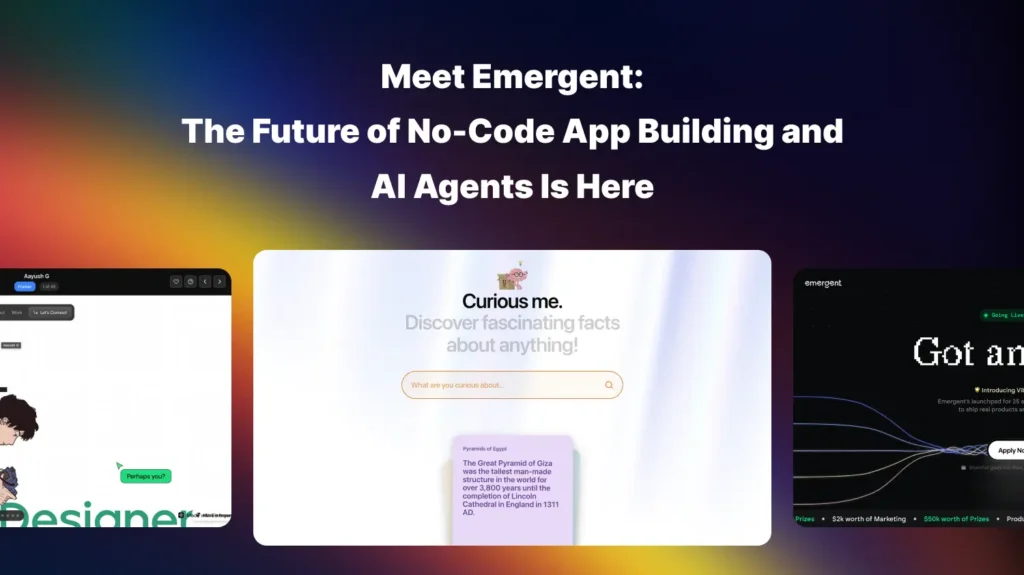Emergent AI: How the Vibe-Coding Startup Raised $23M & Transformed App Development
Emergent, the AI vibe-coding startup, raised $23M funding, hit $15M ARR within 90 days and lets anyone build production-ready apps via natural language.
Emergent is making waves in the AI startup ecosystem by enabling users to build fully production-ready apps from simple natural-language prompts. Backed by heavyweights like Lightspeed, Y Combinator, and Together Fund, this vibe coding platform is lowering the barrier to software creation.

What is Emergent?
(Here you can insert an image of the UI or agents cooperating — e.g. one of the middle images above.)
Emergent is a vibe-coding / agentic app-building platform that lets users build fully functional apps via text prompts—no deep coding skills required. You simply describe what you want, and Emergent’s AI agents take care of designing, coding, testing, and even deploying the app.
Some key facts:
- Emergent is backed by major investors like Lightspeed India, Together Fund, Prosus Ventures, Y Combinator, and prominent angel investors including Jeff Dean and Balaji Srinivasan.
- In just 90 days, Emergent hit an impressive $15 million in Annual Recurring Revenue (ARR).
- It raised $23 million in its latest Series A funding round.
Features & How It Works
Here are what make Emergent stand out, and how it works behind the scenes:
- Natural-language app creation
You describe your app in plain English, and Emergent transforms that input into UI + backend + deployment. - Agentic / Multi-agent architecture
It doesn’t rely on a single model doing everything; multiple specialized AI agents collaborate: some handle UI/UX, others backend logic, testing, bug fixing, deployment etc.
3. No-code / low-code friendly
It lowers or removes the need for coding, which helps non-technical founders, designers, or small teams get working products out fast.
4. Fast prototyping to deployment
What might’ve taken weeks or months (front-end + backend + integration + deployment) can now be achieved in minutes or hours, depending on complexity.

Use Cases & Examples
Here are some actual or potential use cases:
- Building MVPs or prototypes for startups
- Internal tools or dashboards for companies
- Simple consumer-facing web apps, landing pages
- Automating workflows such as forms + database + backend logic
- UI/UX experimentation and A/B testing with rapid iteration
Use Cases & Who Benefits
- Non-technical founders / creators who have ideas but lack coding skills.
- Small businesses that need internal tools, dashboards, CRMs, etc., quickly and affordably.
- Teams seeking workflow automation or internal apps without hiring developers.
Advantages & Competitive Edge
- Speed & cost efficiency: Reduces development time drastically.
- Ease of use: Natural language inputs, minimal technical overhead.
- Full lifecycle support: Deployment, scaling, backend, payments etc., handled automatically.
- Lower barrier to entry especially for creators, entrepreneurs, or small business owners.

Challenges & What to Keep an Eye On
- Building highly customized, complex apps may still require manual coding.
- Ensuring security, maintainability, and robustness of auto-generated code.
- Scaling infrastructure reliably as user base and app complexity increase.
- Retaining users beyond early experimentation stages.
Conclusion: Why Emergent is a Startup to Watch
Emergent represents a strong shift toward democratizing software development by merging AI, automation, and agentic systems. With major funding, fast revenue growth, and real usage, it’s not just a promising concept—it’s executing. Entrepreneurs, creators, and small teams should watch closely; this could be the platform that makes software creation accessible to millions more.
Lorem ipsum dolor sit amet, consectetur adipiscing elit. Ut elit tellus, luctus nec ullamcorper mattis, pulvinar dapibus leo.
